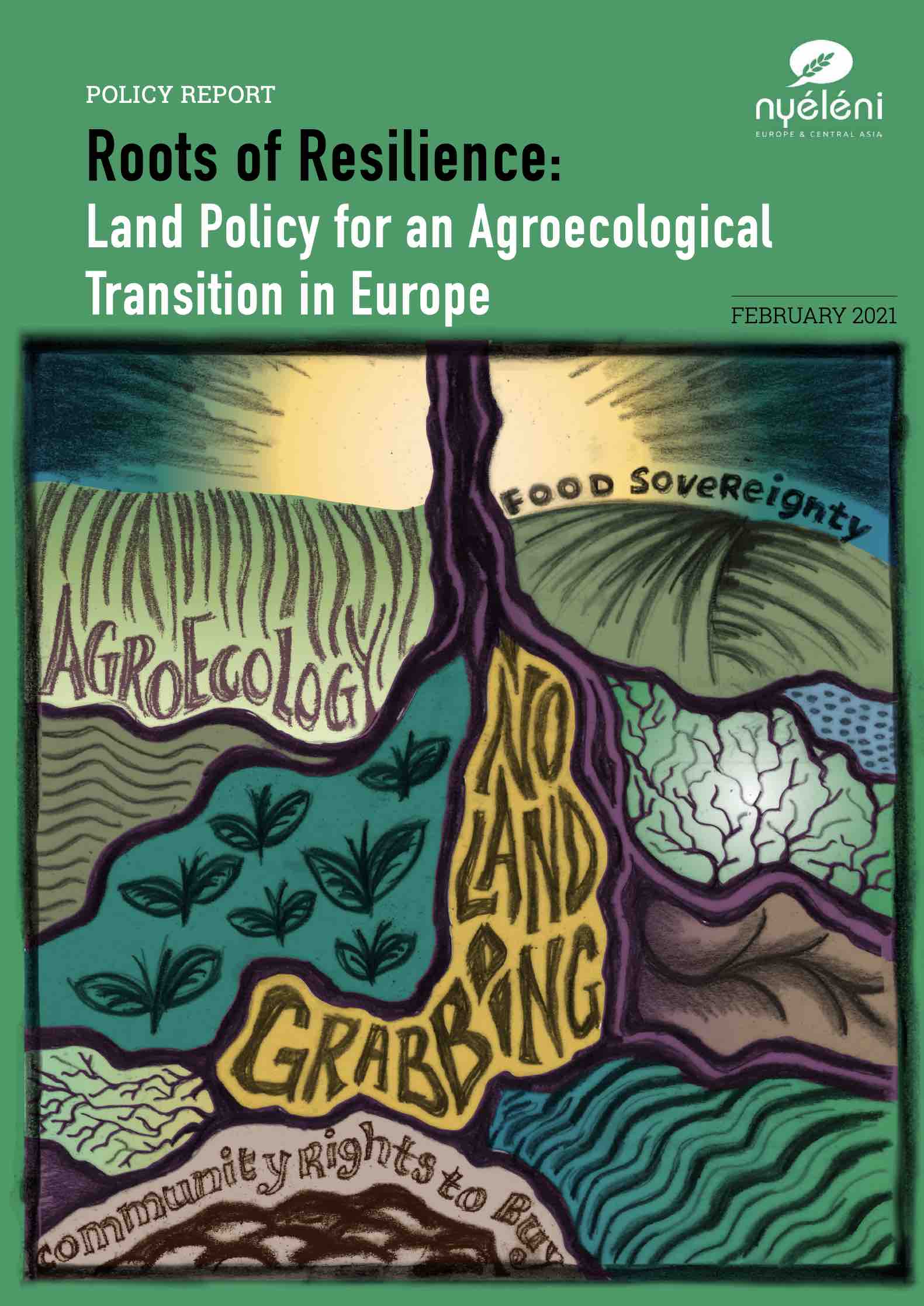Roots of Resilience: Land Policy for an Agroecological transition in Europe
Read the policy report report “Roots of resilience: Land policy for an agroecological transition in Europe” in English
Read the executive summary in English or French
Read the Press Release (in English, French and Spanish)

The policy report “Roots of resilience: Land policy for an agroecological transition in Europe” argues for an approach to land policy in Europe based on a model of land stewardship and agroecology as key components of a sustainable agriculture model and resilient food system in Europe. Various pathways are laid out for securing this at local, national and European levels, including through opportunities provided by the new CAP, the European Green Deal, and the Farm to Fork Strategy.
Support to increased access to land for agroecology throughout Europe is now more critical than ever in light of a number of alarming trends including increasing land concentration and land speculation, instances of land grabbing, the precipitous decline in the number of farmers and smallholdings, a generational challenge in terms of farm succession, massive biodiversity loss, a crisis in soil fertility, and the devastating impacts of intensive livestock breeding and industrial agriculture, to mention but a few. A number of policy recommendations geared towards policymakers at all levels are offered to counter these trends and take seriously the goal of increasing access to land for agroecology in Europe.
Read the report in English
Read the executive summary in English or French
Read the Press Release (in English, French and Spanish)
More information can be found on the Access to Land website.
Notes
The policy report “Roots of resilience: Land policy for an agroecological transition in Europe” is a collective document coordinated by European Coordination Via Campesina (ECVC), Terre de Liens, URGENCI, Eco Ruralis, IFOAM Organics Europe, Real Farming Trust (RFT) and Transnational Institute (TNI), to which many allies and other organisations have contributed. It was produced as part of the Erasmus + partnership on Innovative Land Strategies.

